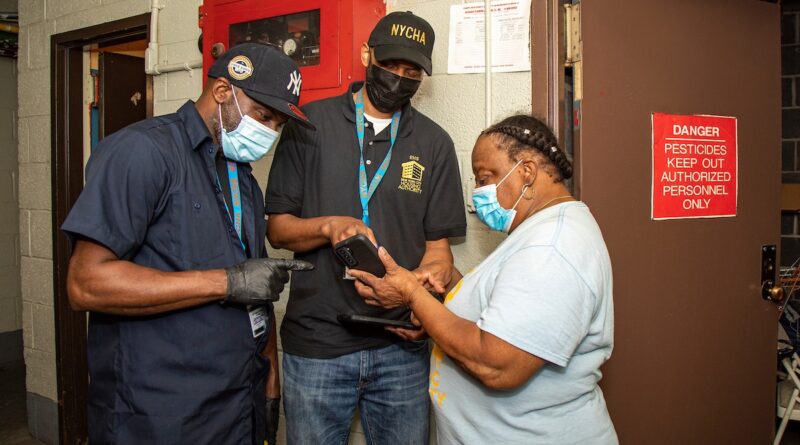Meet the EHS Integrated Pest Management Oversight Team (IPMOT)
NYCHA’s Environmental Health and Safety Department’s (EHS) Integrated Pest Management Oversight Team (IPMOT) oversees pest mitigation and extermination measures to ensure compliance with best practices and existing standard procedures, in accordance with the principles of NYCHA’s Integrated Pest Management (IPM) approach. As part of its work, the IPMOT:
- Conducts oversight inspections of staff providing pest management services and performs post inspections of the services to ensure best practices were used;
- Analyzes all aspects of pest control throughout the Authority to identify trends and make recommendations;
- Provides guidance to property managers, the Pest Control Department, and exterminators; and
- Ensures the exterminator shop is in compliance with the New York State Department of Environmental Conservation’s rules and regulations.
The IPMOT consists of four pest specialists, led by a Pest Administrator. They are all IPM professionals with extensive knowledge and certifications regarding extermination and Integrated Pest Management. Under the IPM approach, NYCHA exterminators use pesticides only when signs of pests are present, focusing instead on addressing the underlying causes of a pest problem, such as trash disposals, leaks, and holes.
Exterminator Shop Inspection
As part of its various responsibilities, the IPMOT ensures that the exterminator shop follows State Department of Environmental Conservation rules and regulations.
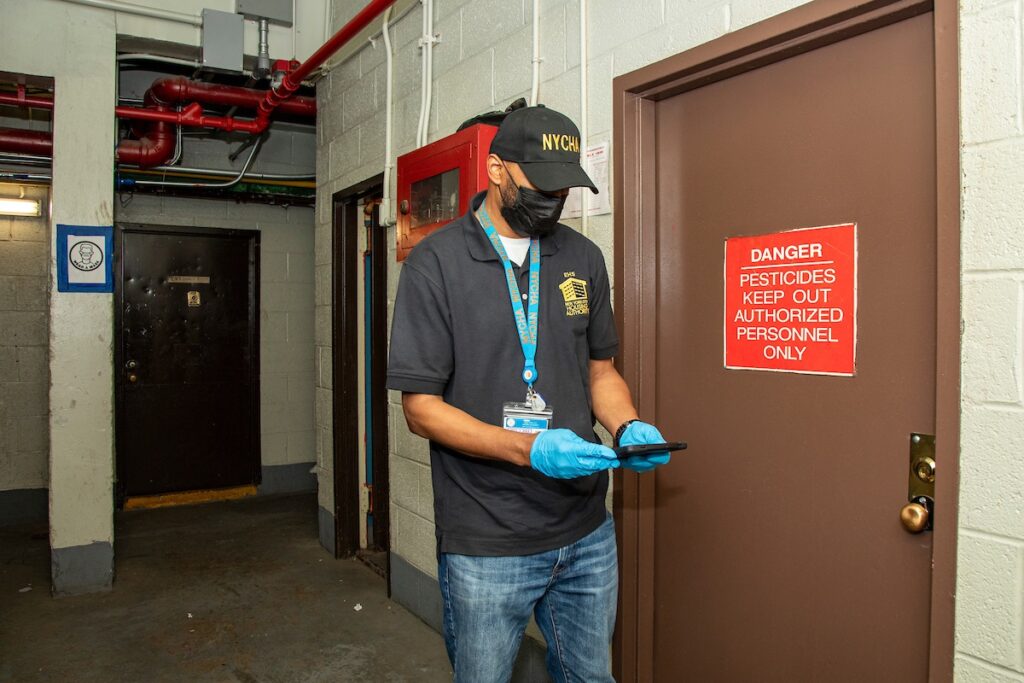
Rasheed Wilds, Senior IPMOT Specialist, checks that the signage on the entry door to the exterminator shop is clearly posted, notifying employees that hazardous chemicals are stored inside and that only authorized personnel should enter.
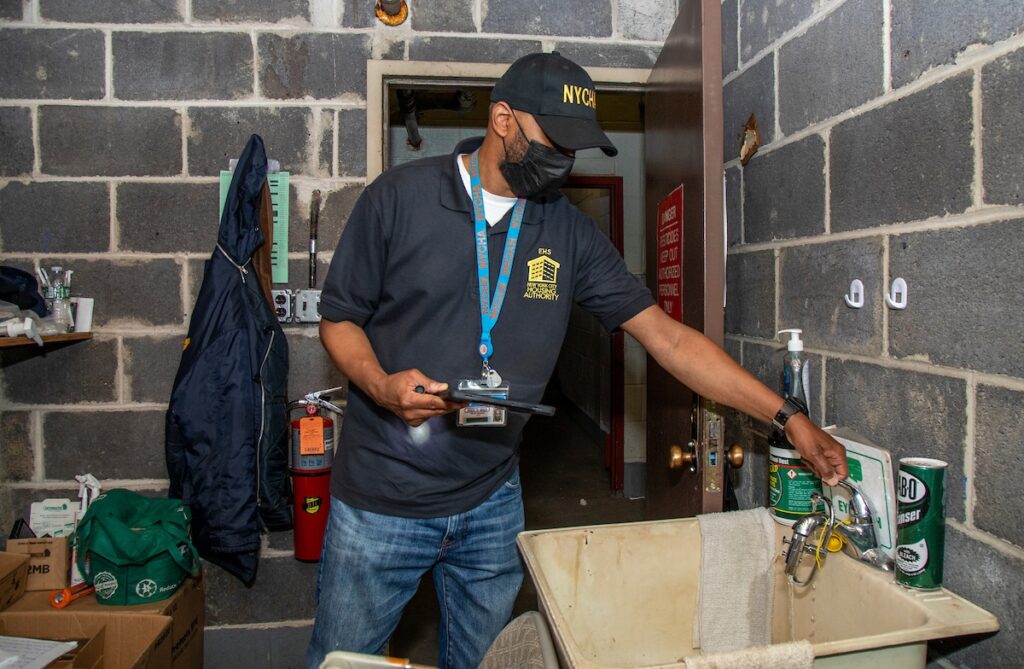
The IPMOT ensures that the eyewash station works properly in the event that an employee has accidental chemical exposure and may need to flush away hazardous chemicals.
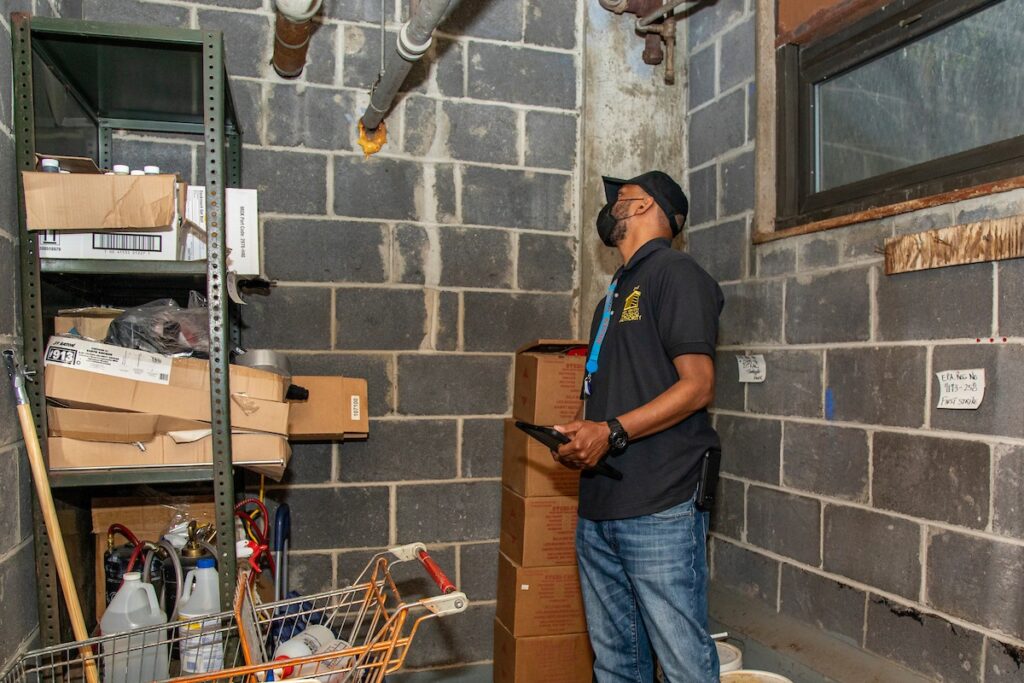
IPMOT specialists check that there are no gaps in the exterminator shop’s piping, which can allow pests to enter the space.

The IPMOT also inspects the room for expired pesticides and to ensure that the appropriate label is used on the pesticide containers.
Non-Residential Pest Evaluation
The IPMOT conducts oversight inspections of non-residential areas, such as compactor rooms, to get a sense of the level of infestation and type of pests that might be in apartments. Additionally, the inspections indicate whether waste is being disposed of properly.

During the compactor room inspections, IPMOT specialists check for rodents, rodent droppings, and any presence of roaches.
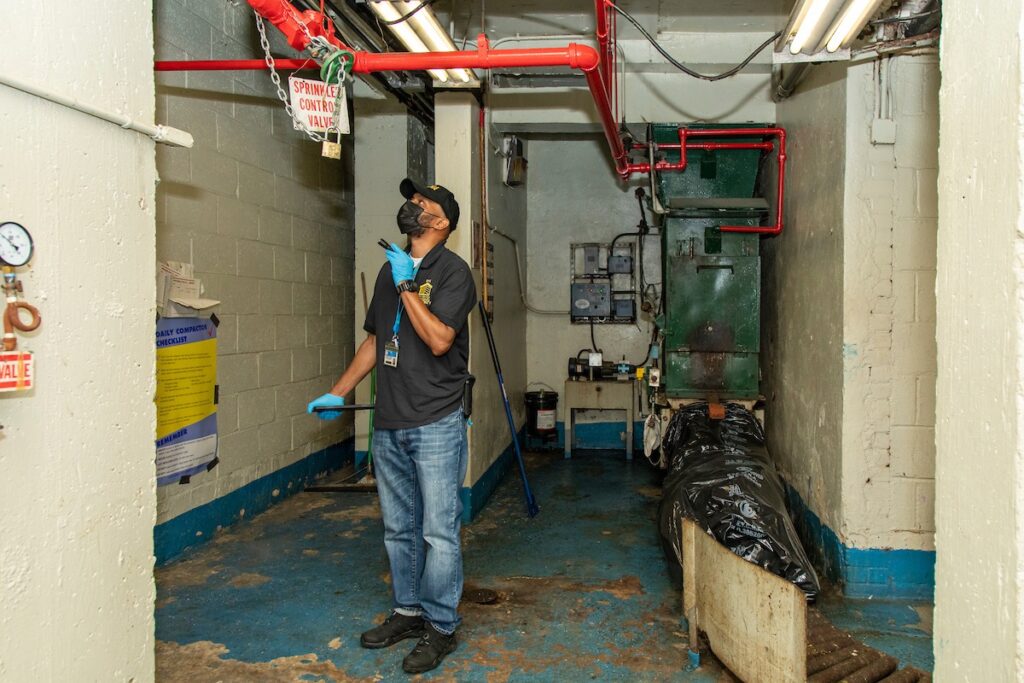
IPMOT specialists inspect the compactor room for any gaps in the piping, which can allow pests to enter the room.
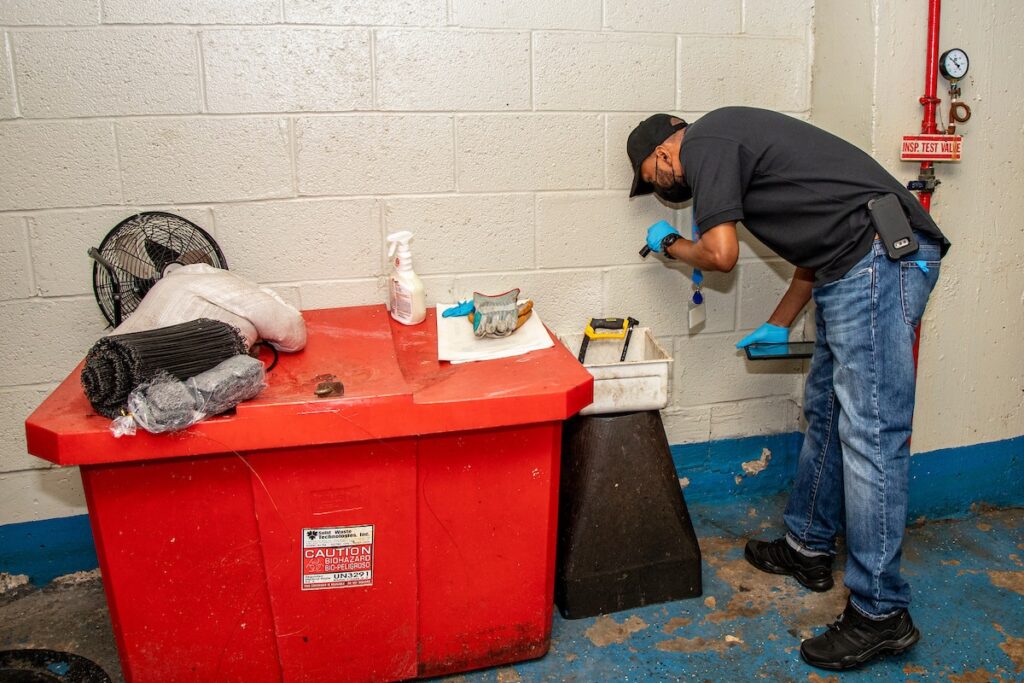
Specialists also check for pests behind storage containers and other areas.

Mr. Wilds ensures that the first-aid kit is stocked with the appropriate items, such as non-expired first-aid solutions, bandages, and gauzes.
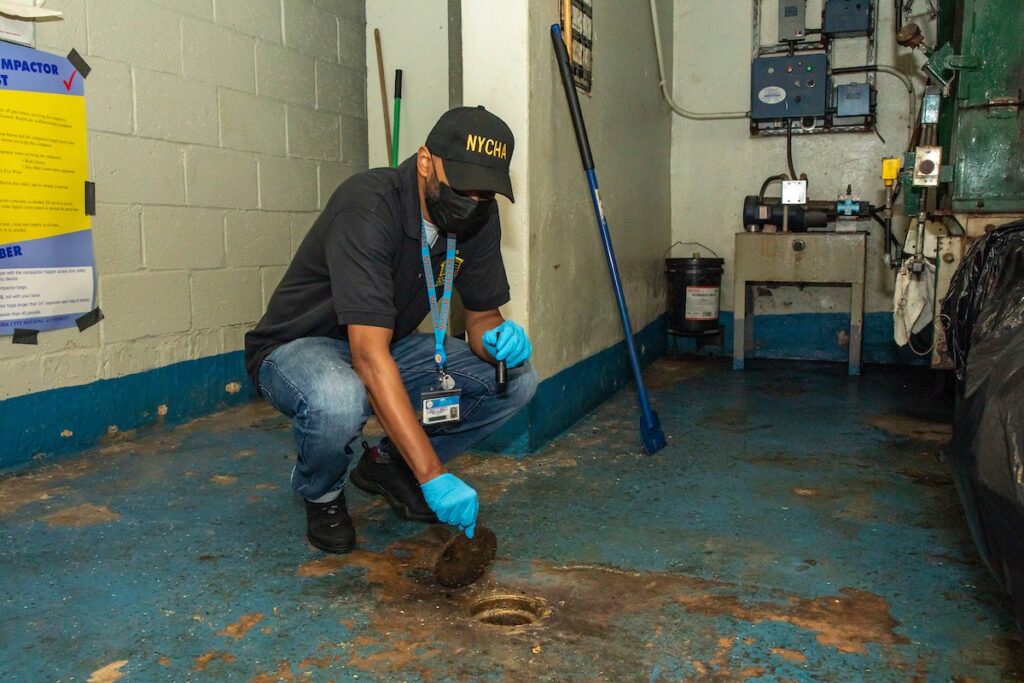
The IPMOT checks the drain cap in the compactor room for any evidence of roaches, mice, etc. Loose and/or missing drain caps can allow pests to enter the space.
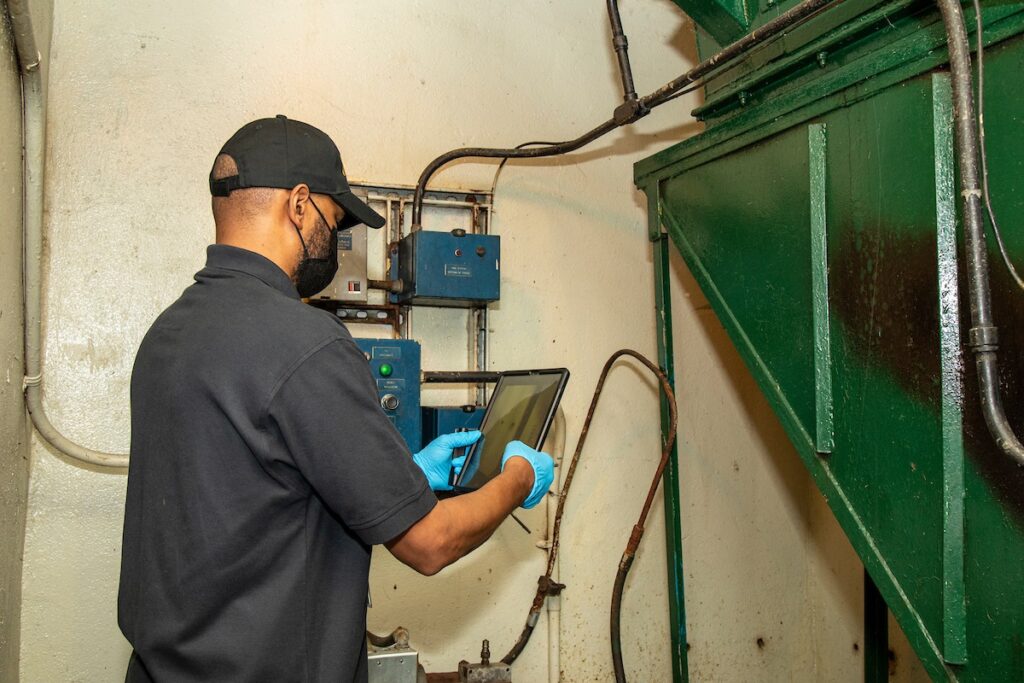
Mr. Wilds takes photos of any roach droppings behind the compactor machine and enters the findings into a handheld device.
Direct Observation of Exterminators
As part of the direct observation of the exterminator process, IPMOT specialists observe the NYCHA exterminators who inspect and treat apartments using Integrated Pest Management methods. IPMOT specialists conduct an on-site interview with the resident and/or development staff, assess the apartment, and conduct a Maximo review for the work-order history. Depending on the severity of the infestation, the specialist may ask the exterminator to inspect the compactor room, basement, or a neighboring apartment.
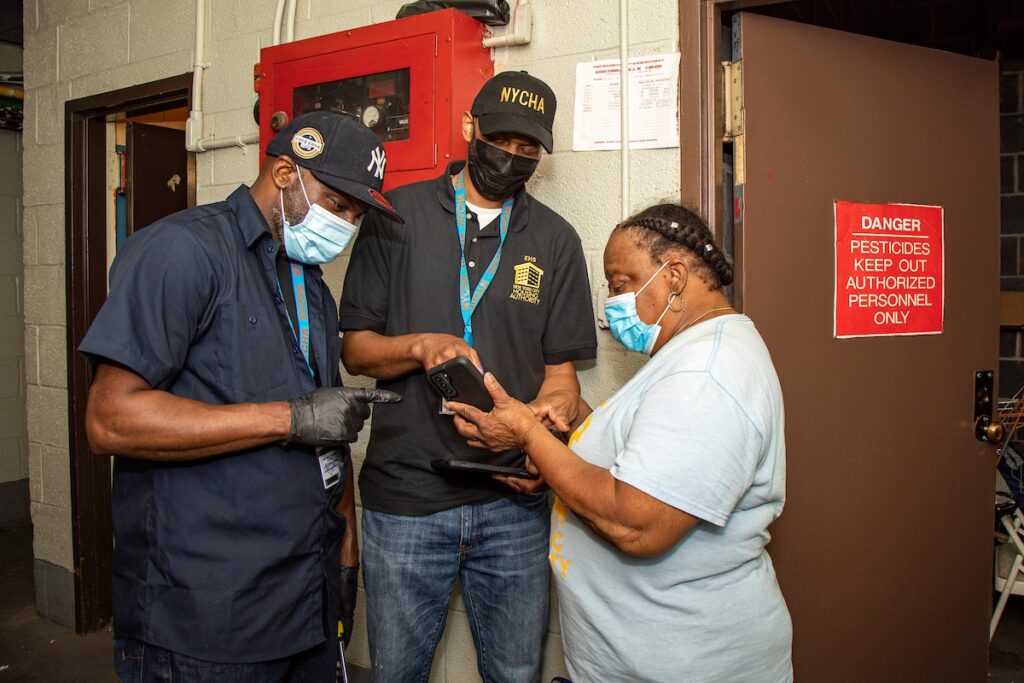
The IPMOT meets with the exterminator, verifies their credentials, and reviews the work orders that have been assigned for the day.

As part of the IPM approach, exterminators apply roach gel to kitchen cabinets or other areas where evidence of roaches was observed. The IPMOT specialist will review the process for accuracy.

IPMOT specialists advise the exterminator on where to apply the gel for effective treatment. The specialist may also point out any deficiencies in the exterminator’s inspection and treatment process.

Upon completion of their inspection, IPMOT specialists document the findings and review the Maximo work orders.

After the inspection is finished, the IPMOT specialist notifies Property Management or the Supervisor of Exterminators in person or by email of any pest-related deficiencies observed that may require a follow-up evaluation.
For more information on IPM and pest control at NYCHA, click here. To report pests, please call the Customer Contact Center at 718-707-7771, or use the MyNYCHA app or website.

